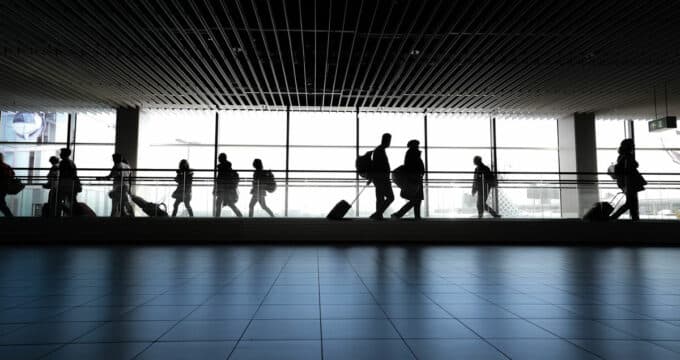Survey finds travel ban influencing agents’ view of US
In a January 2017 interview with Times Higher Education Institute of International Education President Allan Goodman downplayed the hot political rhetoric of the US presidential campaign and its likely impact on international enrolment in the US: “Open Doors data show that student flows are typically affected only by actual shifts in policy or due to other tangible factors such as economic fluctuations, and that students are largely unaffected by shifting perceptions or rhetoric.” About two weeks later, however, any perception that the US could become less welcoming to international visitors became much more tangible. On 27 January, Donald Trump signed a first executive order to implement a travel ban for citizens of seven Muslim-majority countries. While that order was subsequently set aside by a federal court, Mr Trump had continued to push for travel restrictions for the seven countries, an ambition that culminated in a second executive order, and a modified travel ban for six Muslim-majority countries, that was signed on 7 March. In between the two orders, PIER Online released an online survey targeted to international education agents. Carried out between 1–10 February, the survey received 556 responses from agents in 64 countries. Those responding to the survey were asked about the likelihood of their recommending the US for prospective students in the wake of the first travel ban in January. They were also asked how their post-ban view of the US compared to their perspective prior to the executive order. And, finally, they were asked how their views on the US would change if the travel ban was lifted. The resulting survey report, an updated version of which was released just this week, finds that the ban has indeed had a significant impact on how some agents view the US as a study destination. In short, greater percentages of agents indicated that they were less likely to recommend the US during the period the travel ban was in effect, whether or not their country was directly affected. Looking more closely at those agents who are actively recruiting to the US, the survey responses indicate the following in the wake of the travel ban announced in January.
- 11.11% of agent respondents who recruit to the US indicated their opinion of the country as a study destination had been permanently changed for the worse.
- 43.56% of respondents who recruited for the US reported their opinion of the US had been temporarily diminished during the period the travel ban was in effect. That is to say that these respondents were less inclined to recommend the US during the travel ban, but expected that they would do so again when the ban was lifted.
- More than half of responding agents indicated that their students had expressed concern with the first executive order in January.
“These figures indicate a significant disconnect between the number of people the order was designed to affect and the number of people it has actually affected through reputational damage,” observes the report. Reflecting on the fact that the US administration now seeks to restore the travel ban through its 7 March executive order, the report adds, “54.67% of respondents who recruit to the US are less likely to recommend the country as a study destination compared to yesterday.” [Editor’s note: this reflects the 11.11% who report their views are permanently changed as well as the 43.56% indicating that they would be less likely to recommend the US during a travel ban.] A number of open-ended responses included in the survey further illuminate the agents’ perspective. “With the current executive order, US is no more advisable for any foreign student. This is because the list of the seven barred countries is expected to be increased any moment now,” said a Nigerian agent. “Unless President Trump provides clear guidance on his immigration policies, we shall direct students to Canada, New Zealand, Ireland, and Australia,” added another respondent from the Philippines. And a Vietnamese recruiter noted that his agency would continue to refer students to the US, but more cautiously than in the past: “Until there are clarifications, the confidence level will remain low at least for the time being. We are cautioning parents on their selection and will continue to process applications for US schools as long as parents are properly informed of the situation.” The survey report stops short of projecting near-term enrolment impacts in the US, but estimates that every 10,000 foreign students enrolled equates to roughly US$325 million in direct economic impact and supports nearly 5,000 jobs. This means that even a decline of one or two percentage points in current growth rates could have a substantial effect on the US economy and on American educators. Make no mistake, however, the US is still a tremendously attractive study destination, and agents will continue to actively recruit for US institutions and schools. “The US was always a better study destination option for students from Nepal and it is still a better destination today,” said one respondent. And another from France added that he too would stay the course, “My recommendations to my students remains the same because I think it is possible to gain a value-for-money education in the US, and because my personal opinion is that the US is a wonderful country.”














